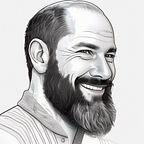PSYCHOLOGY
Mistakes & Shame
You are not alone
I see them — my friends, my schoolmates, leading lives that I envy. I’m happy for them, but… I messed up. I took wrong turns, and now… I feel like I’m leagues behind… I feel ashamed.
I let out a shaky breath, my eyes darting away. God, I can’t possibly cry in the first session…
She leans forward. “Can you tell me more about this shame? Do you feel it’s because of something you’ve done, or is it more about who you believe you’ve become?”
Rubbing my face, I frown. “It’s like a voice in my head that won’t stop. It keeps telling me I’m not good enough. That I’ve made mistakes no one else would’ve made. And now, compared to everyone else, I’m… less.”
“Less,” she lets the word hang in the air, “in what way?”
“I don’t know… in so many ways. I’m so angry at myself. It feels like every major decision I’ve made turned out to be a mistake. I can’t just manage the outcomes of my mistakes forever. This isn’t how I envisioned my life…”
She leans in, her voice earnest. “I’m asking because shame is a complex emotion. It differs from guilt, which concerns our actions. Shame concerns our sense of self. So, what do you feel? Shame, or guilt?”
I stare at the floor, avoiding her gaze. “Both” I admit, a knot forming in my throat.
In a calm, deliberate voice, she asks, “How do you feel about these feelings?”
“I want them to go away. I’m so angry at myself. I can see how this is exacerbating everything. But I can’t help it. I feel like I’m going mad, oh god.” I recline abruptly in the chair, glancing at the ceiling before quickly shifting my gaze to the floor, evading her eyes once more.
“You’re not mad, you’re hurt. Your feelings are entirely normal. Please, allow yourself to feel them. This is the first step. You’re human, just like everyone else. It’s okay to be human.”
For the first time since I began speaking, our eyes meet. I cry.
A vase of flowers. A light blue wall. The muted sounds of the city outside. And there I am, breaking down.
Handing me a box of tissues from her table, she murmurs, “It’s alright. Healing begins when we acknowledge our pain. The journey of self-forgiveness and acceptance isn’t easy, but it’s essential.”
Taking a deep breath, I confide, “I just… I feel like I’m drowning. Everyone else seems to have their life on track. They’ve got careers, families… happiness. And I’m just… here. No offense.”
“None taken,” she responds gently. “You’d be surprised how many people, even those who seem to ‘have it all,’ grapple with insecurities and challenges. Others having everything sorted out might reflect more on your own desire for such lives to exist than what is really the truth.”
I nod slowly, pondering her words. “But how do I move past this overwhelming regret and shame?”
“We will begin by understanding the root of these feelings,” she replies. “Exploring your past experiences and decisions will grant a clearer perspective. Together, we’ll provide you with tools to navigate these emotions and, in time, find acceptance.”
“But is acceptance enough?”
She smiles warmly. “I know what you might be thinking. But acceptance isn’t about giving up. It’s about understanding our past, reconciling with it, and laying a foundation for the future. With acceptance comes clarity, and with clarity, the power to make choices aligned with your true self. And come to think of it, it’s very possible that your true self has been silenced for too long, and he might have something to say about the life you truly desire. And you might not be as far away from such a life as you think.”
I pause for a minute. “I think… I understand. I’m ready to try. I want to find my way back.”
She nods, her smile reassuring. “And I’ll be with you every step of the way. Starting now, we’re a team!”
If you liked this article
Consider following TheSubtext, our Medium publication, for more insightful articles on human thought and behavior.
